This feature is part two of our June 2018 cover story. Check out the full issue in digital pdf form right here or in your browser here.
Last year, construction crews bricked over thousands of stores and restaurants throughout the capital, forcing many business owners to leave. We asked hutong residents and shop owners in Beixinqiao – a neighborhood that was particularly hard hit – how their lives have changed.
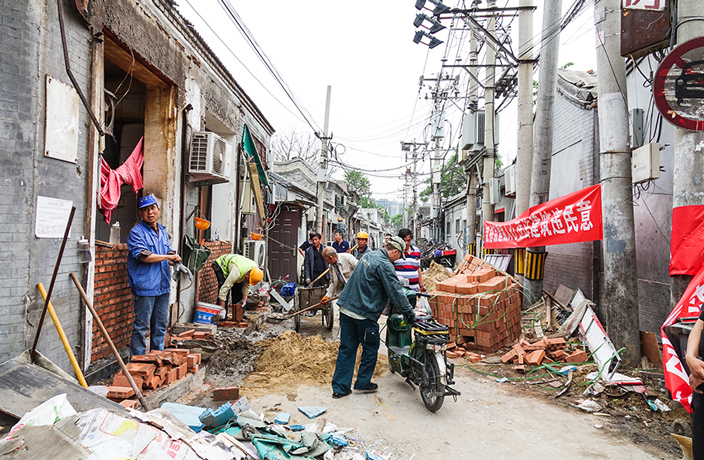
Mr. Liu
Hutong resident, from Beijing
“I have lived here for more than 50 years. I was born here and I like living here. In the past, the hutongs weren’t so messy, and they were in good order. After the Reform and Opening Up, many people from other provinces began to live in Beijing. This was not the case during Mao’s time. The policy now is to rebuild the walls. Windows along the street have been sealed, and walls have been built to replace the door or window. The reason behind the policy is the overpopulation of people from other provinces in Beijing. The restaurants here are all opened by people from other provinces. Now the city has become messy. The city is less clean than the countryside. Now some of them have gone back home. This has had a positive effect."
Mr. Song
Hutong resident, from Beijing
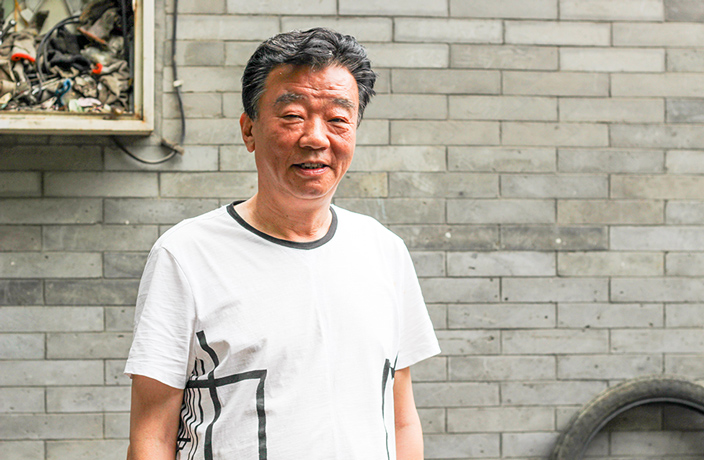
“Of course it’s better now. It’s important to protect the old streets. As soon as the roads were made larger, the traffic got better, and it’s easier to go through. There are fewer people now, and without those commercial activities the streets got larger, there is more space. I think things will continue to get even better. The changes affected those with businesses. They lost their source of revenue and were damaged, but the Laobaixingthat live here were not really affected. For us it is a nice thing. I’ve always lived in this area. It hasn’t changed since I was small – it’s just gotten cleaner. Also, despite the changes on the surface, the houses haven’t changed on the inside. These renovations are like washing one’s face with water. You can change the exteriors, but the houses remain the same. [The renovations have] been a process of clearing out low-end businesses. It’s not possible to open shops and restaurants everywhere inside a city. Beijing was full of businesses before, but now Beijing is the political and cultural center, and it is necessary to regulate the city more.”
Mr. Huang
Tailor, originally from Jiangsu
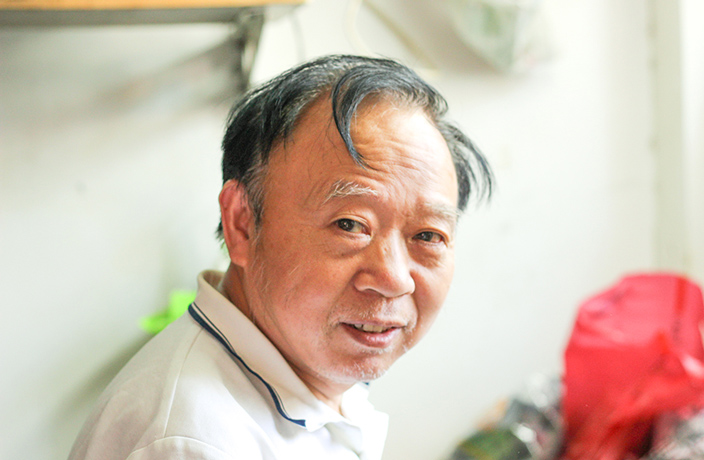
“We weren’t informed in advance – It happened suddenly, in March of last year. One day is not enough to close the shop, but I closed it that afternoon. I come from Jiangsu, but I have lived in this hutong for 20 years. It was prosperous and busy in the past. Now there are not so many people because many restaurants have been closed. We are influenced because the customers don’t know we have moved out and changed locations. Our business is affected, though we never had that much income in the first place, since our business is small. But we don’t want to leave, because we are already accustomed to the environment here."
Mr. Wu
Shop owner, originally from Hebei
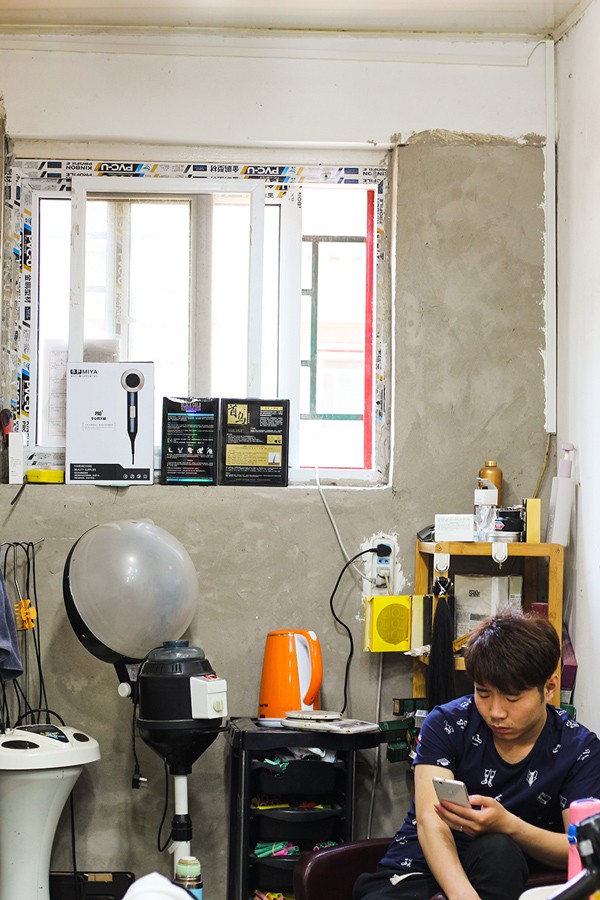
“My shop doesn’t affect the environment here so I can remain in business. But some restaurants were influencing the hygiene and air conditions. We can’t earn much money any more. Our monthly income is 10,000 renminbi less than before. A year ago, lots of people sat outside to eat, and there were so many people. Indeed, it was hard for cars to move in the hutong, but the atmosphere was good. Nowadays, there are only a few people here at night.”
Ms. Han
Shop owner, originally from Henan
“In the past, we had a door and a window here, but now they are closed up. We also need to move, and we are no longer allowed to sell things. They want this to be a private house. [The hutong] is cleaner now, but our income has decreased a lot because there are fewer people here. Now there are only about 40 to 50 percent of the customers we had before. But the environment in the hutong is better and parking here is more convenient. The hutong is not as busy as before. Hutongs are traditional, and they should be busier. [The renovation is] good for the preservation of the hutongs but brings little benefit to the owners of shops."
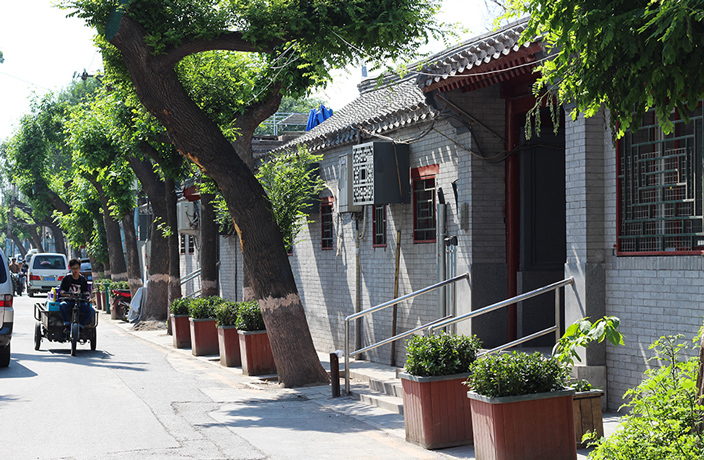
Mr. Wang
Carpenter, originally from Henan
“There are fewer and fewer customers here, and our business has been influenced a lot. Last year it was very busy. There were so many people over the holidays. [Now,] it is desolate. They want people to move out of Beijing. We don’t have a good impression of this policy. Many people who owned restaurants had to move back to their home provinces since they didn’t have places to live in. We don’t have a deficit, but we earn less than before. The hutong’s appearance is good, but when you walk into the hutong, you will find that it is messy. [Renovations] just focused on the appearance but ignored the construction of the inner part. I liked the environment before.”
This feature is part two of our June 2018 cover story:

READ MORE: Off the Market: The Aftermath of Beijing's Wholesale Market Closures
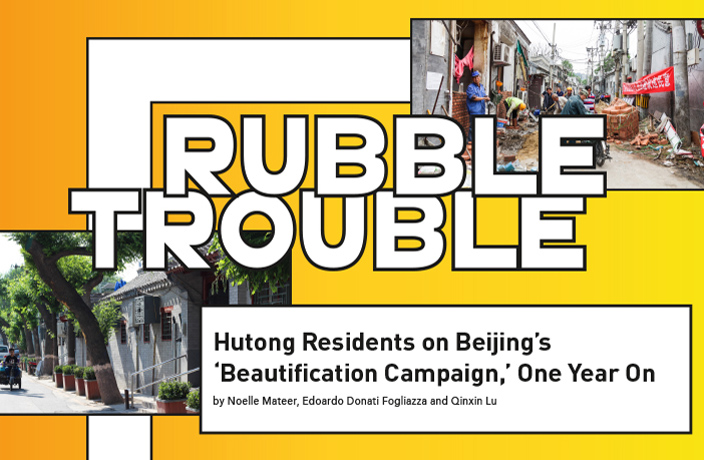





















0 User Comments